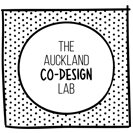Te Tokotoru: Growing Intergenerational Equity and Wellbeing
Te Tokotoru is a systems approach to wellbeing, developed alongside whānau and rangatahi. It provides a different starting point for designing and investing in equity and intergenerational wellbeing.
Te Tokotoru is helping the public sector move from a deficit-focused, service-led, crisis response cycle, to being strengths-based, whānau-centred, and focused on what matters to communities in place.
Te Tokotoru can be translated as the ‘unbreakable three’, referencing the interdependent dimensions of te taiao, or the natural world: rangi - sky, whenua - land and moana – sea.
Here, Te Tokotoru refers to the interdependent dimensions of healing, strengthening and responding.
Strengthening – growing existing strengths and protective factors.
Healing – what supports restoration, healing and rebalancing.
Responding – accessing an ecology of support through many sources, before crisis.
Te Tokotoru brings together the essence of what diverse whānau said matter and make the difference to their wellbeing, based on over seven years of work with The Southern Initiative and The Auckland Co-Design Lab.
On this page, you will find a series of reports, resources and tools to help you understand and apply Te Tokotoru.
Evidence Brief
Innovation Briefs share point-in-time learning from our work alongside whānau and other partners. This brief introduces Te Tokotoru, a guide and provocation to re-orientate investment towards the conditions for equity and intergenerational wellbeing.
Practice Foundations
Practice Foundations is a monthly public sector community of practice event hosted online by The Auckland Co-Design Lab and Healthy Families Far North.
We have held two sessions focused on Te Tokotoru. In our most recent session, Kimi Tangaere shared insights from her use of Te Tokotoru, particularly around healing and strengthening. Our initial Practice Foundations session on Te Tokotoru can be found here.
Reference Kit
Te Puna Aonui is a collective of government agencies who are responsible for delivering Te Aorerekura - the National Strategy to Eliminate Family Violence and Sexual Violence. This reference kit was developed for Te Puna Aonui and:
Provides an overview of Te Tokotoru, why it’s important, and how it was developed
Explains the three dimensions of healing, strengthening and responding
Explains how Te Tokotoru helps to implement the shifts of Te Aorerekura
Includes examples of how Te Tokotoru is being used by different teams in the public sector to prioritise what matters and makes the difference to whānau
Provides useful tools to help people apply Te Tokotoru in different contexts.
Case Studies
This report provides three case studies sharing how Te Tokotoru is being used by government agencies to rebalance action and investment to what makes the difference for whānau.
These case studies are examples of how Te Tokotoru can be used to join up government and be more whānau-centred (ACC); to work directly with whānau on what supports wellbeing (South Auckland Social Wellbeing Board); and to collapse the distance between whānau and government (Family Court redesign).





























































